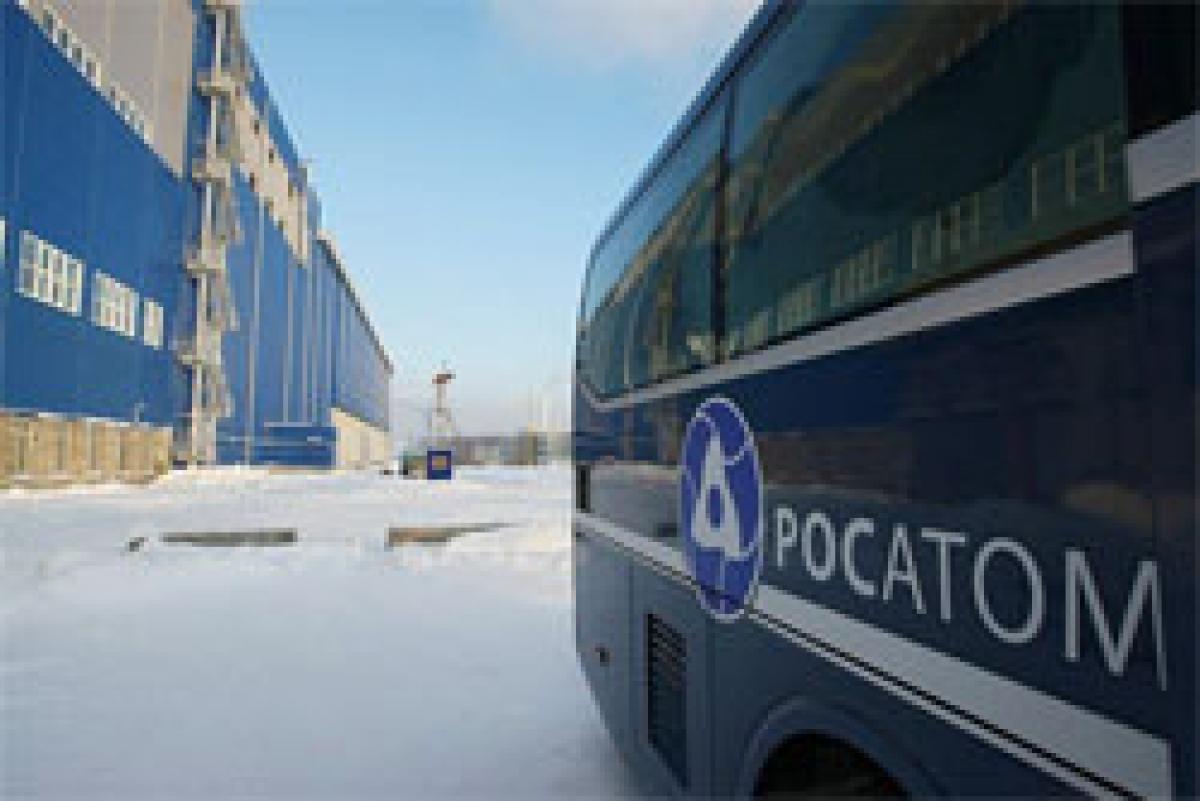Live
- PM Modi receives ceremonial welcome in Abuja, begins bilateral talks with Nigerian President Tinubu
- Goods traffic doubles on the new railway freight corridors
- BGT 2024-25: I’d like to see him make one more Test ton in Australia, says Johnso
- Harassment due to ED raids forced Kailash Gehlot to quit, hints Kejriwal
- Kailash Gehlot exit: BJP goes on the offensive against 'corrupt' AAP govt
- PM Modi pays homage to ‘the great’ Balasaheb Thackeray on his death anniversary
- One who cares for Delhi will not stay with gang of robbers: Sachdeva on Gahlot's resignation
- From Self-Doubt to Self-Love: Vange Cain’s Inspirational Path
- Rahul Gandhi remembers Balasaheb Thackeray on his death anniversary
- Tomato prices drop 22.5 pc as flow of fresh crop picks up pace
Just In
Rosatom demonstrates its thermal capabilities at PowerGen

17 July 2015 7:48 PM IST

x
Highlights
Within the framework of the world renowned POWER-GEN Africa conference and exhibition, Russian Atomic Energy Corporation Rosatom hosted a workshop on its thermal capabilities, ‘Modern Russian Technologies for Thermal Power Engineering in Africa.’ The workshop was by over 170 representatives from African large and medium companies and covered the prospects of cooperation in the sphere of energy development in Africa, highlighting the benefits of Russian power engineering technologies.
Within the framework of the world renowned POWER-GEN Africa conference and exhibition, Russian Atomic Energy Corporation Rosatom hosted a workshop on its thermal capabilities, ‘Modern Russian Technologies for Thermal Power Engineering in Africa.’ The workshop was by over 170 representatives from African large and medium companies and covered the prospects of cooperation in the sphere of energy development in Africa, highlighting the benefits of Russian power engineering technologies.
The company presented its extensive experience in the thermal power sector as well as in oil, gas and chemical industries. Rosatom’s Engineering Division outlined its current portfolio in the construction and modernisation of 20 power units in Russia. It has designed and built more than 100 thermal and hydro power plants in the territory of the former USSR and foreign countries, including countries with subtropical, tropical and subequatorial climates (Algeria, Vietnam, Cuba, Egypt, Iraq, Korea).
The Power Engineering division and its associated enterprises displayed their capabilities in the manufacture of complex boiler island equipment as well as in building automated control systems for thermal, hydro- and geothermal power plants. Engineering company Ziomar have manufactured over 700 boiler units with a total installed capacity of 66 GW, which have been installed in over 20 countries.
Also highlighted was the experience in HRSGs (Heat Reserve Steam Generators), execute waste to energy projects and low capacity power engineering.
Dmitry Vysotsky, Chief Expert of International Business Development for ASE –NIAP – AEP highlighted the companies experience in turn key EPC projects, in both nuclear and thermal. “ASE –NIAP – AEP staff are fully equipped to provide the full EPC cycle from R&D to implementation and commissioning. To date we have designed and constructed over 40 units in Russia, most of which are still up and running today. We have the capability and the willingness to share these expertise with our potential partners in Africa,” said Vysotsky.
Russian export insurance agency EXIAR presented its outlook on potential development of cooperation between South Africa and Russia. To date the company has concluded two deals in Africa worth over 100 million Dollars.
Nikolay Drozdov, Director of Rosatom International Business Department noted that POWER-GEN Africa was the optimum platform to unveil the company’s expertise in the thermal power sector. “POWER-GEN provides us with the opportunity to meet with regional power sector leaders from Sub-Saharan Africa, a region that is very important to Rosatom. Not only do we believe that our technology is viable for this sector but we are willing to help modernize the current thermal stations through our years of experience,” he said.
Speaking at the workshop Knox Msebenzi, Executive Director of PIESA discussed the current challenges facing the African power sector and laid out the continents strategic plans in the development of its energy sector. “Africa has been blessed with so much energy and yet we have very little power, electricity penetration is currently only at 20% in Sub-Saharan Africa,” said Msebenzi.
The demand for electricity in Sub-Saharan Africa far outweighs the supply, currently 25 of the 54 nations on the continent are in the midst of an energy crises. Only about a quarter of the Sub – Saharan Africa’s population have access to electricity, “this means that 600 million people are living with limited or no access to a reliable supply of electricity,” emphasized Msebenzi.

Next Story
More Stories
ADVERTISEMENT
© 2024 Hyderabad Media House Limited/The Hans India. All rights reserved. Powered by hocalwire.com






